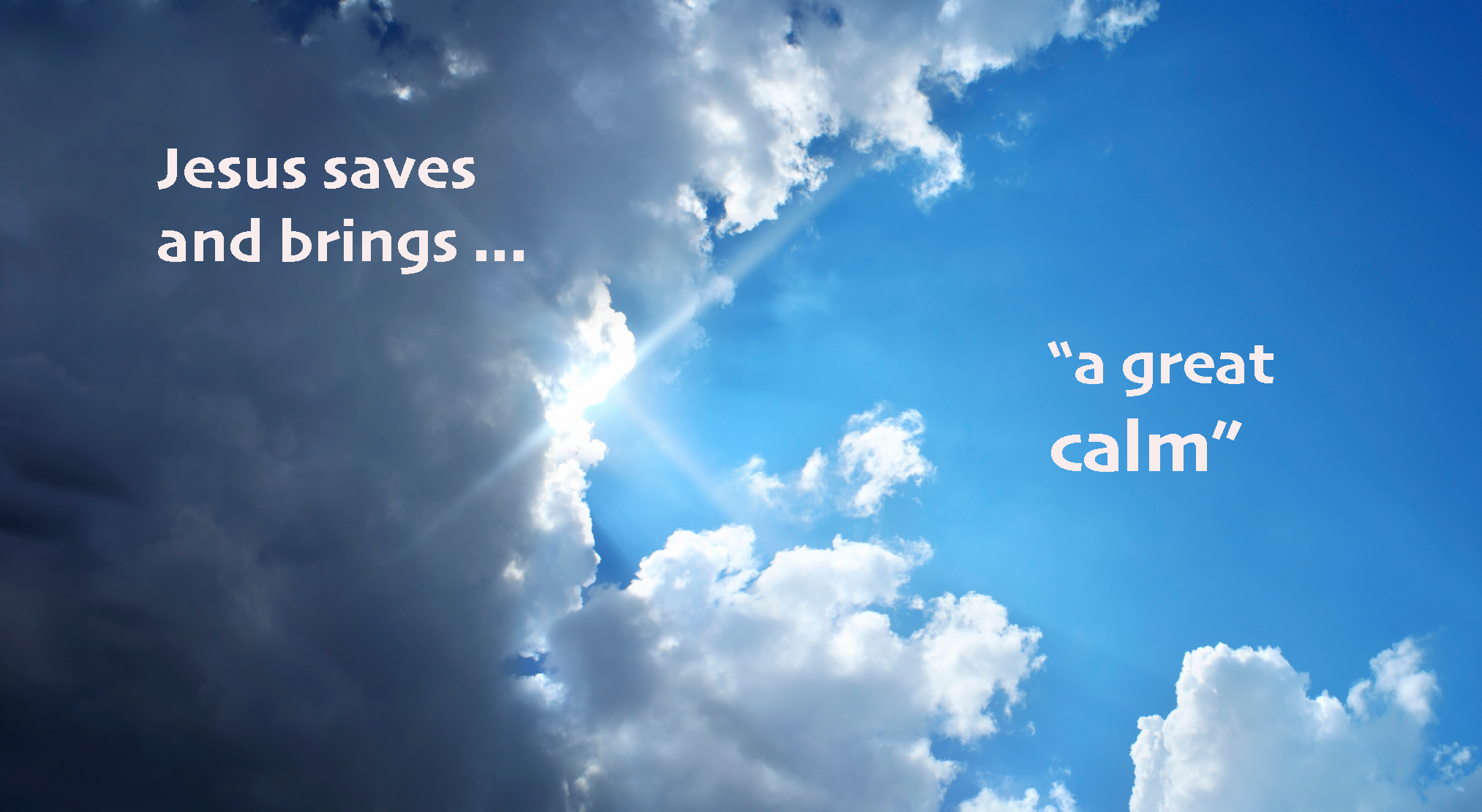Lectionary for June 23, 2023
Fifth Sunday after Pentecost
1 Samuel 17:32-49; Psalm 9:9-20;
2 Corinthians 6:1-13; Mark 4:35-41
In May a tornado hit our town. My wife’s friends lost a barn, and some of their farm trucks were tossed around like they were my kids’ toys. Trees fell on my in-laws’ house, so the next day we dug out, sawed branches and got back on with life. Thank God no one in our town was killed or even injured badly. Still, my wife, sons and in-laws had all huddled in the basement that night as we heard the all-too-familiar “freight train” go by. Not surprisingly, this year I have a renewed interest in the story of Jesus calming the storm.
In Mark’s version of storm-calming (there are a few!), the disciples have an active role. They leave (or dismiss) the crowd, take Jesus with them and set out in multiple boats. The tiny armada is soon caught up in a gale that causes waves to break over the sides of the boat so that it was close to capsizing.
This is where I start to see things differently. Our house and neighborhood were spared from the tornado while those just south and west of us were not. That makes me think about those multiple boats. Were they all in the same storm and in the same danger? Were they all close to capsizing or was it just the boat that Jesus was on? What were the disciples in the other boats experiencing? Did they scan the waves and wonder which boat Jesus was in and ask themselves why they couldn’t see him (he was lying down asleep, after all …)?
We hear about the disciples who were able to wake and interrogate Jesus (Do you not care that we are being destroyed?) but what about those who couldn’t see Jesus or didn’t know where he was? What happened to them? “They” came to the other side in Mark 5:1, and as terse and laconic as Mark is, I hope that a boatful of disciples sinking would have been noteworthy.
Jesus always cares and never wants anyone to be destroyed. God is not willing that any should perish.
A handful of disciples dismissed the crowd, gathered Jesus to themselves, loaded him in a boat and then went in another boat. They were no doubt every bit as concerned about the storm. It’s just that they weren’t in a position to rouse Jesus and ask him whether he cared about them or not.
That is the central question, after all: Jesus, do you not care that we are being destroyed? They don’t ask about the storm, or if Jesus can save them, or even for proof that he is the messiah. What they want to know—what we want to know amid the meteorological or metaphorical storms in our lives—is whether Jesus cares if we are being destroyed.
Jesus answered not with words but action. He got up, rebuked the wind and ordered the sea to be still. The wind died down, and literally in Greek “a great calm occurred.” As we huddled in the basement that night, my middle son sobbed with fear, and we prayed and talked about what he was feeling—and then “a great calm occurred.” In fact, he fell asleep on my lap with the tornado sirens still blaring.
Only after the storms were calmed did Jesus ask why the disciples had become cowardly (deilos here means something like “becoming timid,” rather than phobos and related words that speak about “fear”). But they weren’t afraid yet—that happened in the next verse (4:41). Instead, they were mad, hurt and indignant. Jesus, the boat is being swamped, and probably all the other boats as well. We are rowing, we are bailing. Where are you? Don’t you care? How can you sleep? Does it not matter to you that we are being destroyed?
Jesus responds by acting, delivering and saving. I do care that you are being destroyed! Sometimes Jesus is in the boat with us. Sometimes Jesus is in a boat nearby, and sometimes he is in Jerusalem when we’re in a storm on the Galilee. But Jesus always cares and never wants anyone to be destroyed. God is not willing that any should perish (2 Peter 3:9).
So, as we face storms in this life (of any kind), remember what Jesus does first. Before he says a word about fear, he saves and brings “a great calm.” That is our messiah. There are plenty of learning and growth opportunities. But first, before anything else, Jesus saves.










